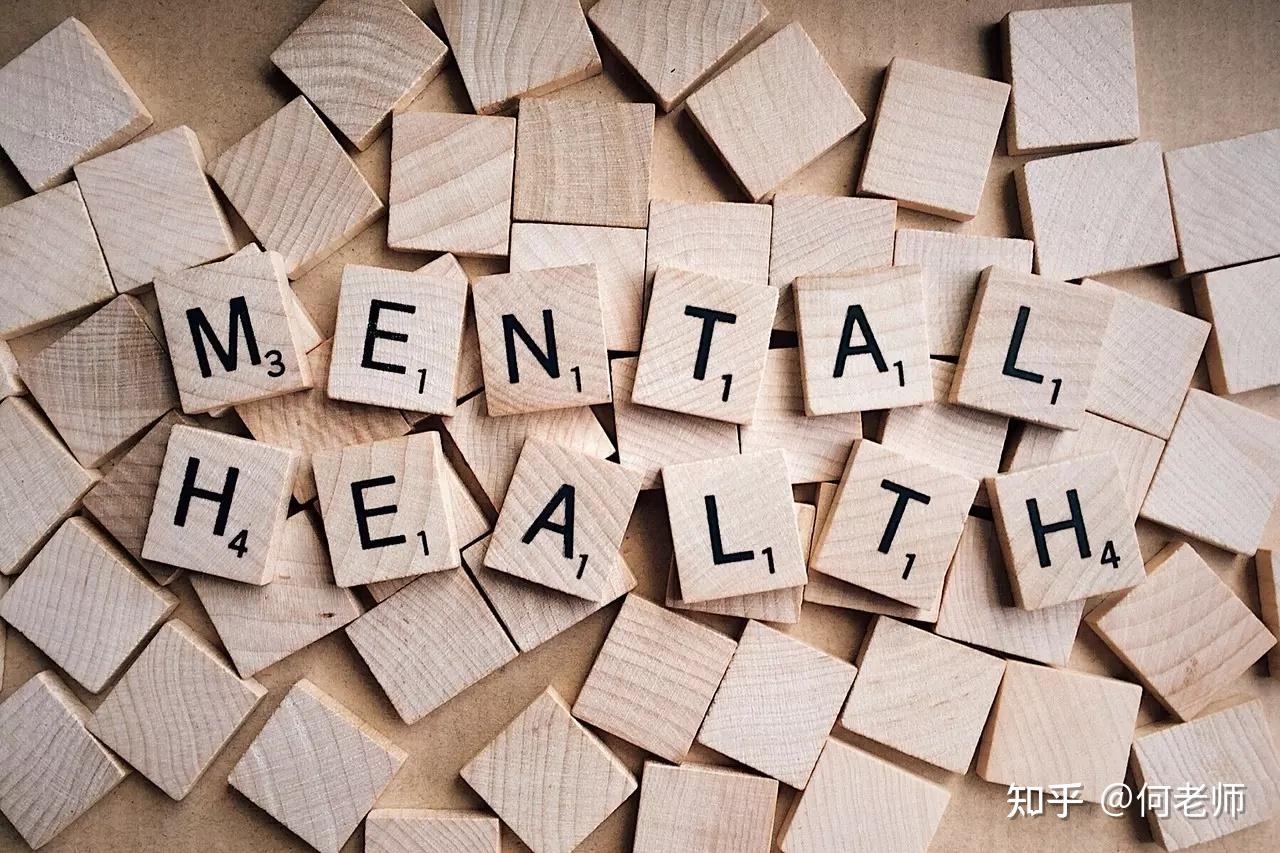|
|
心理健康评估工具主要以思维为中心,邀请客户回答关于他们的精神状态和主观体验的问题。
心理学家和治疗师依靠这些工具为寻求心理健康支持的客户做出最佳治疗方案的决定。因此,花一点时间探索它们的变化以及如何最有效地使用它们是值得的。
近年来,科学家们已经开始区分心理测试和心理评估。
测试通常被认为是考虑人与人之间差异的纸笔测试(或基于网络、计算机的测试),而“评估”是由专业人员根据掌握的专业知识和从业经验采用测试以外的其他方法来评估这些差异,包括面谈、观察和记录生理功能等。(戈尔茨坦、艾伦和迪鲁卡,2019)。

明尼苏达多相人格测试(MMPI)
MMPI是世界上应用最广泛的心理测试,用于测量以精神病理学形式为特征的精神健康疾病(Rogers,Robinson和Jackson,2016年)。MMPI是心理学界公认的最可靠的、也是最全面的心理健康评估工具。
该量表包含500多道对-错陈述题,评估10个临床子量表(Butcher、Dahlstrom、Graham、Tellegen和Kaemmer,1989年)。
10个临床量表
- 疑病症
- 抑郁
- 歇斯底里
- 精神变态者
- 男性/女性气质
- 偏执狂
- 精神衰弱
- 精神分裂症
- 轻度躁狂
- 社交内向
除了这10个主要的临床量表,MMPI还包含三个分量表来检测说谎,防御和不一致的反应。
另外,MMPI还具有许多额外的量表,用于评估特定的认知、行为、身体体验和动机,如自我怀疑、竞争驱动和胃肠等问题。
贝克焦虑量表
另一种常用的心理健康评估是贝克焦虑量表。该测试是一个简短的自我报告测试,用于评估焦虑的症状。它包括详细的评分,以帮助专业人员确定被测者目前的焦虑症状。
该量表包括21种常见的焦虑症状:
- 麻木或刺痛
- 感觉热
- 摇晃腿
- 无法放松
- 害怕最糟糕的情况发生
- 头昏眼花
- 心跳加速
- 反复无常
- 害怕/恐惧
- 神经紧张
- 窒息的感觉
- 手颤抖
- 颤抖/不稳定
- 害怕失控
- 呼吸困难
- 害怕死亡
- 惊恐
- 消化不良
- 虚弱/昏迷
- 脸发红
- 热/冷汗
用4分制表示被测者过去一个月中每种症状困扰他们的频率,其中0分表示“完全没有”,3分表示“严重困扰我”。
总分是通过21个项目的得分合计:
0-21 =低焦虑
22-35 =中度焦虑
36及以上=重度焦虑

贝克焦虑量表(自测,免费提供)

贝克抑郁量表
和贝克焦虑量表类似,贝克抑郁量表同样包含21道选择题,并包含详细的评分信息,以指示症状是在正常范围内还是严重。
得分及评估结论:
1-10=这些起伏被认为是正常的
11-16=轻度情绪障碍
17-20=临界临床抑郁症
21-30=中度抑郁
31-40=重度抑郁症
40分以上极度抑郁
贝克抑郁量表(自测,免费提供)
贝克抑郁量表21道选择题:问卷系统贝克抑郁量表21道选择题:
1.
0 I do not feel sad.
1 I feel sad
2 I am sad all the time and I can't snap out of it.
3 I am so sad and unhappy that I can't stand it.
2.
0 I am not particularly discouraged about the future.
1 I feel discouraged about the future.
2 I feel I have nothing to look forward to.
3 I feel the future is hopeless and that things cannot improve.
3.
0 I do not feel like a failure.
1 I feel I have failed more than the average person.
2 As I look back on my life, all I can see is a lot of failures.
3 I feel I am a complete failure as a person.
4.
0 I get as much satisfaction out of things as I used to.
1 I don't enjoy things the way I used to.
2 I don't get real satisfaction out of anything anymore.
3 I am dissatisfied or bored with everything.
5.
0 I don't feel particularly guilty
1 I feel guilty a good part of the time.
2 I feel quite guilty most of the time.
3 I feel guilty all of the time.
6.
0 I don't feel I am being punished.
1 I feel I may be punished.
2 I expect to be punished.
3 I feel I am being punished.
7.
0 I don't feel disappointed in myself.
1 I am disappointed in myself.
2 I am disgusted with myself.
3 I hate myself.
8.
0 I don't feel I am any worse than anybody else.
1 I am critical of myself for my weaknesses or mistakes.
2 I blame myself all the time for my faults.
3 I blame myself for everything bad that happens.
9.
0 I don't have any thoughts of killing myself.
1 I have thoughts of killing myself, but I would not carry them out.
2 I would like to kill myself.
3 I would kill myself if I had the chance.
10.
0 I don't cry any more than usual.
1 I cry more now than I used to.
2 I cry all the time now.
3 I used to be able to cry, but now I can't cry even though I want to.
11.
0 I am no more irritated by things than I ever was.
1 I am slightly more irritated now than usual.
2 I am quite annoyed or irritated a good deal of the time.
3 I feel irritated all the time.
12.
0 I have not lost interest in other people.
1 I am less interested in other people than I used to be.
2 I have lost most of my interest in other people.
3 I have lost all of my interest in other people.
13.
0 I make decisions about as well as I ever could.
1 I put off making decisions more than I used to.
2 I have greater difficulty in making decisions more than I used to.
3 I can't make decisions at all anymore.
14.
0 I don't feel that I look any worse than I used to.
1 I am worried that I am looking old or unattractive.
2 I feel there are permanent changes in my appearance that make me look unattractive
3 I believe that I look ugly.

15.
0 I can work about as well as before.
1 It takes an extra effort to get started at doing something.
2 I have to push myself very hard to do anything.
3 I can't do any work at all.
16.
0 I can sleep as well as usual.
1 I don't sleep as well as I used to.
2 I wake up 1-2 hours earlier than usual and find it hard to get back to sleep.
3 I wake up several hours earlier than I used to and cannot get back to sleep.
17.
0 I don't get more tired than usual.
1 I get tired more easily than I used to.
2 I get tired from doing almost anything.
3 I am too tired to do anything.
18.
0 My appetite is no worse than usual.
1 My appetite is not as good as it used to be.
2 My appetite is much worse now.
3 I have no appetite at all anymore.
19.
0 I haven't lost much weight, if any, lately.
1 I have lost more than five pounds.
2 I have lost more than ten pounds.
3 I have lost more than fifteen pounds.
20.
0 I am no more worried about my health than usual.
1 I am worried about physical problems like aches, pains, upset stomach, or constipation.
2 I am very worried about physical problems and it's hard to think of much else.
3 I am so worried about my physical problems that I cannot think of anything else.
21.
0 I have not noticed any recent change in my interest in sex.
1 I am less interested in sex than I used to be.
2 I have almost no interest in sex.
3 I have lost interest in sex completely.
参考:
- Aidala, A., Havens, J., Peake, M., & Keane, T. (2002). Use of Client Diagnostic Questionnaire (CDQ): Training manual. Retrieved from https://targethiv.org/sites/default/files/file-upload/resources/Client_Diagnostic_Questionnaire.pdf
- Butcher, J. N., Dahlstrom, W. G., Graham, J. R., Tellegen, A., & Kaemmer, B. (1989). Manual for administration and scoring: MMPI-2. University of Minnesota Press.
- Carleton, R. N., Norton, M. P. J., & Asmundson, G. J. (2007). Fearing the unknown: A short version of the Intolerance of Uncertainty Scale. Journal of Anxiety Disorders, 21(1), 105–117.
- Cronbach, L. J. (1949). Essentials of psychological testing. Harper.
- Edelstein, M., Brang, D., Rouw, R., & Ramachandran, V. S. (2013). Misophonia: Physiological investigations and case descriptions. Frontiers in Human Neuroscience, 7, 296.
- Goldstein, G., Allen, D. N., & Deluca, J. (2019). Historical perspective. In G. Goldstein, D. N. Allen, D. N., & J. Deluca (Eds.), Handbook of psychological assessment (4th ed.). Elsevier.
|
|